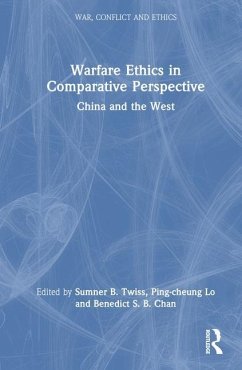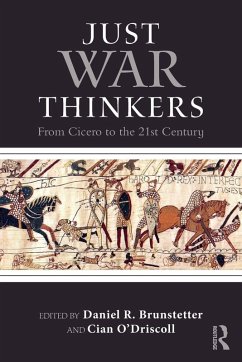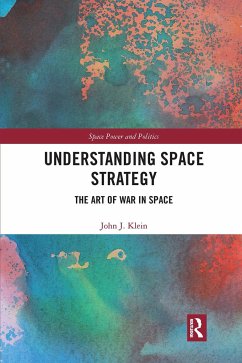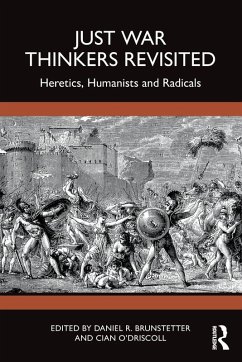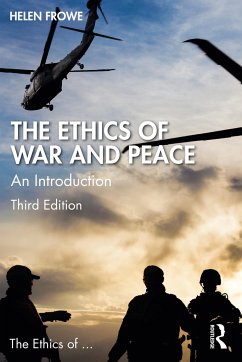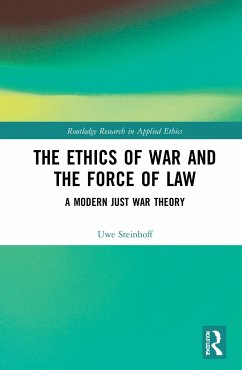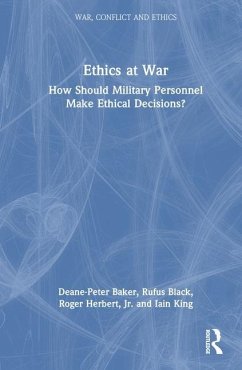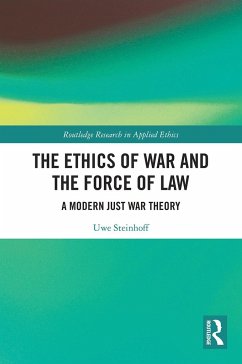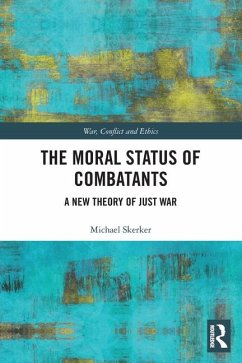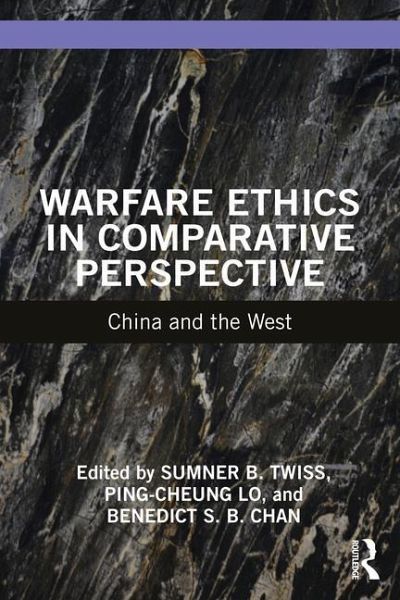
Warfare Ethics in Comparative Perspective
China and the West
Herausgegeben: Twiss, Sumner B.; Lo, Ping-cheung; Chan, Benedict S. B.
Versandkostenfrei!
Versandfertig in 6-10 Tagen
42,99 €
inkl. MwSt.

PAYBACK Punkte
21 °P sammeln!
This volume explores East Asian intellectual traditions and their influence on contemporary discussions of the ethics of war and peace.Through cross-cultural comparison and dialogue between East and West, this work charts a new trajectory in the development of applied ethics. A sequel to the volume Chinese Just War Ethics, it expands the range of the earlier work and includes attention to Japan and other Eastern and Western traditions for contrastive reflection and engages with the full range of Chinese intellectual traditions for comparative analysis. The book scrutinizes pioneering works suc...
This volume explores East Asian intellectual traditions and their influence on contemporary discussions of the ethics of war and peace.
Through cross-cultural comparison and dialogue between East and West, this work charts a new trajectory in the development of applied ethics. A sequel to the volume Chinese Just War Ethics, it expands the range of the earlier work and includes attention to Japan and other Eastern and Western traditions for contrastive reflection and engages with the full range of Chinese intellectual traditions for comparative analysis. The book scrutinizes pioneering works such as the Mengzi, the Han Feizi, and the Seven Military Classics, investigating their influence in subsequent times. It also engages with new texts and thinkers such as the Four Books of the Yellow Emperor, Zeng Guofan, Chiang Kai-shek, and Mao Zedong, along with examining recent writings of the scholars of the People's Liberation Army. The final section of the book identifies anddiscusses some emerging issues in the comparative study of military ethics, just war and peace that derive from the preceding sections. The volume editors then offer some concluding remarks at the end of the book.
This book will be of much interest to students of the ethics of war and peace, just war theory, military ethics, Asian studies and International Relations in general.
Through cross-cultural comparison and dialogue between East and West, this work charts a new trajectory in the development of applied ethics. A sequel to the volume Chinese Just War Ethics, it expands the range of the earlier work and includes attention to Japan and other Eastern and Western traditions for contrastive reflection and engages with the full range of Chinese intellectual traditions for comparative analysis. The book scrutinizes pioneering works such as the Mengzi, the Han Feizi, and the Seven Military Classics, investigating their influence in subsequent times. It also engages with new texts and thinkers such as the Four Books of the Yellow Emperor, Zeng Guofan, Chiang Kai-shek, and Mao Zedong, along with examining recent writings of the scholars of the People's Liberation Army. The final section of the book identifies anddiscusses some emerging issues in the comparative study of military ethics, just war and peace that derive from the preceding sections. The volume editors then offer some concluding remarks at the end of the book.
This book will be of much interest to students of the ethics of war and peace, just war theory, military ethics, Asian studies and International Relations in general.





